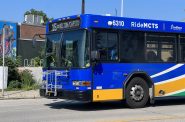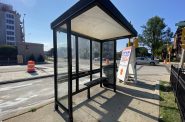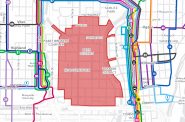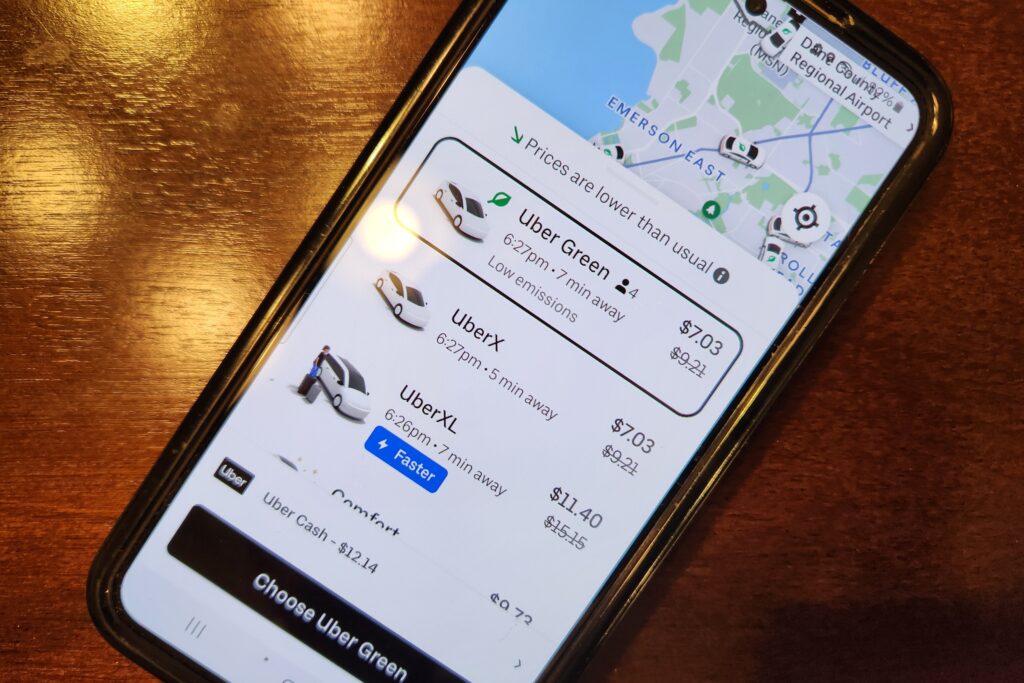Bills Classify Ride-Share Drivers As Independent Contractors
Uber, other companies again push law that 'eliminates' worker rights, AFL-CIO charges.
For the second time in three years state lawmakers are considering bills that would dictate that app-based ride-share and delivery drivers are independent contractors, not employees.
Authors of the bills contend the legislation, AB-477 and SB-559, would allow companies such as Uber, Lyft and DoorDash to offer drivers additional benefits without turning the drivers — who the companies assert want to remain independent — into employees.
“This bill would guarantee workers can remain independent and also gain access to brand new benefits system structure to give drivers ultimate flexibility and accommodate their unique needs,” said Uber lobbyist Katie Franger at an Assembly public hearing in December.
Worker advocates are dubious, however.
“This bill does not eliminate a mere technicality but eliminates essential rights of workers,” said Wisconsin AFL-CIO President Stephanie Bloomingdale in written testimony submitted for the Assembly hearing. “It is the result of a concerted attempt by corporate tech giants that are going state-by-state to evade providing basic employment protections like worker’s comp and the minimum wage for workers.”
On the same day as the Assembly State Affairs Committee hearing, Dec. 20, the Senate Utilities and Technology Committee recommended the Senate bill on a 3-2 party-line vote with only GOP support. A committee vote has not been scheduled for the Assembly bill.
This is the second time lawmakers and the industry structured around “gig work” drivers have sought this legislation, which got a public hearing in the Assembly in the 2021 but never reached the Assembly or Senate floor.
The current bill is nearly identical to that earlier version, according to Rep. Alex Dallman (R-Green Lake), author of this session’s Assembly bill.
The legislation focuses on businesses using drivers who obtain work “through the online-enabled application, software, or system of a network company.” It calls ride-share companies such as Uber or Lyft “transportation network companies” and delivery companies such as DoorDash “delivery network companies.”
If enacted, those drivers would be automatically classified as independent contractors as long as the company doesn’t do any of the following: require drivers to work specific dates, times or hours; terminate drivers for refusing a delivery or transportation request, except if they violate an existing state law against discrimination in the ride-share industry; restrict drivers from working for other services or in any other lawful business or occupation.
The bill would also allow network companies to establish portable benefit accounts that drivers can draw on to cover lost income due to illness or to fund a retirement account. In addition it would let the companies carry occupational accident insurance for medical treatment and lost income for drivers — akin to workers compensation coverage, but not governed by Wisconsin workers comp laws.
“This is a bill intended to keep these drivers who want the flexibility to be an independent contractor to work,” Dallman testified at the Dec. 20 hearing. “They’re not going into these companies expecting to get health care, they’re not going into these companies as independent contractors expecting to get their retirement accounts, but this is just another way for them to possibly receive some earned benefits, if that company still chooses to provide them for their employees or their independent contractors.”
The legislation “provides clear statutory authority enabling app-based companies to give this coverage without compromising independent contractor classification, which workers overwhelmingly tell us that they want,” said Kelley Foxx, a lobbyist for Instacart.
Lloyd Miller of Green Bay, an Uber driver for more than seven years, testified that he took the work because he could set his own hours and schedule.
“I am disabled and unable to work an eight-hour shift,” Miller said. “This bill takes a step to ensure I am covered if injured on the job, but yet allows me to have flexibility to earn money to make ends meet.”
Miller said that he’s covered through insurance Uber carries in case of an accident while he’s driving for the company. While he pays a portion of the premium, “that’s not even noticeable,” he said.
While the legislation has two Democratic cosponsors, Democrats on the Assembly committee were uniformly skeptical.
Rep. Francesca Hong (D-Madison) questioned why the law was needed to maintain flexibility when part-time hours are already an option under traditional employment laws.
“This is a different kind of part-time work,” said Franger, the Uber lobbyist, “because it’s totally in control of the worker — they can choose whether or not they want to be on the platform.”
Hong criticized the bill for not requiring companies to implement either the portable benefit program or the occupational accident coverage.
“There are a lot of ‘mays’ in this bill — you may do this, you may do that … instead of actually cementing it in law,” said Rep. Christine Sinicki (D-Milwaukee).
During Dallman’s testimony Sinicki raised a question about drivers for companies that opt not to carry occupational accident insurance. “Are those employees told that they have no coverage if they get hurt on the job, because the company chose not to take out insurance at all … and they’re not eligible for workers comp?” she asked.
“I would assume that as an independent contractor, you would do that research yourself and understand the things that you’re dealing with,” Dallman replied.
Driver contractor bill intersects with Supreme Court case
While network driver bills are under consideration in the Legislature, the Wisconsin Supreme Court is weighing whether similar drivers who handle final delivery for Amazon are independent contractors, as the online retailer claims.
The Court heard arguments in December after an appeals court ruled that drivers who deliver packages using the Amazon Flex app are employees.
If the Court upholds that ruling, drivers terminated from the Amazon Flex program could qualify for unemployment compensation. The state Department of Workforce Development (DWD) has held that Amazon owes the state more than $200,000 in unemployment insurance premiums plus penalties.
The Amazon case turns on a nine-point test used in state law to separate employees from independent contractors. For a worker to be classified as an independent contractor instead of an employee, the employer must meet at least six of nine possible conditions.
A staff lawyer for the Legislature told Assembly State Affairs Committee members at the committee’s Dec. 20 hearing that, if enacted, AB-477/SB-559 would appear to create a new exception to the nine-point test, giving Amazon an alternative argument to challenge the Court’s decision if it goes against the company.
Ride-share, delivery companies renew push to declare drivers independent contractors was originally published by Wisconsin Public Radio.
Legislation Link - Urban Milwaukee members see direct links to legislation mentioned in this article. Join today
If you think stories like this are important, become a member of Urban Milwaukee and help support real, independent journalism. Plus you get some cool added benefits.
Transportation
-
MCTS Adds 28 New Buses
 Jul 13th, 2024 by Graham Kilmer
Jul 13th, 2024 by Graham Kilmer
-
MCTS Designing New Bus Shelters
 Jul 10th, 2024 by Graham Kilmer
Jul 10th, 2024 by Graham Kilmer
-
MCTS Updates RNC Bus Detours To Better Serve Downtown, Riders
 Jul 9th, 2024 by Jeramey Jannene
Jul 9th, 2024 by Jeramey Jannene





















